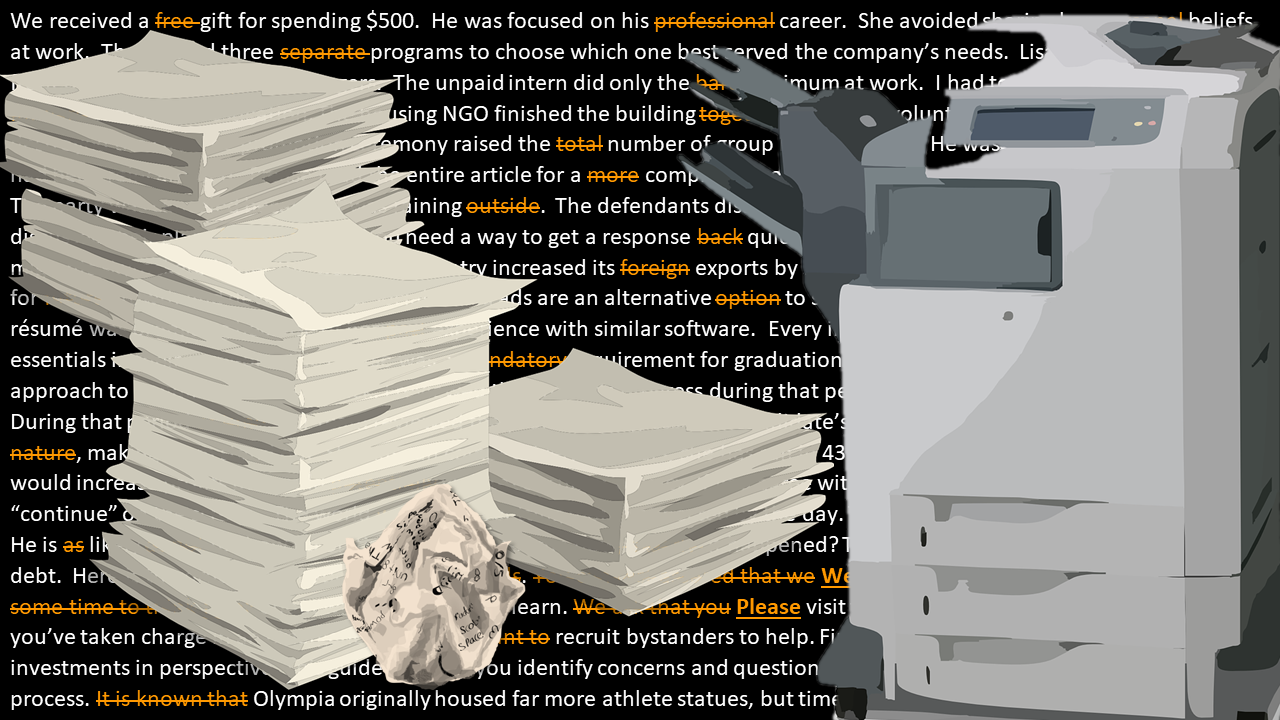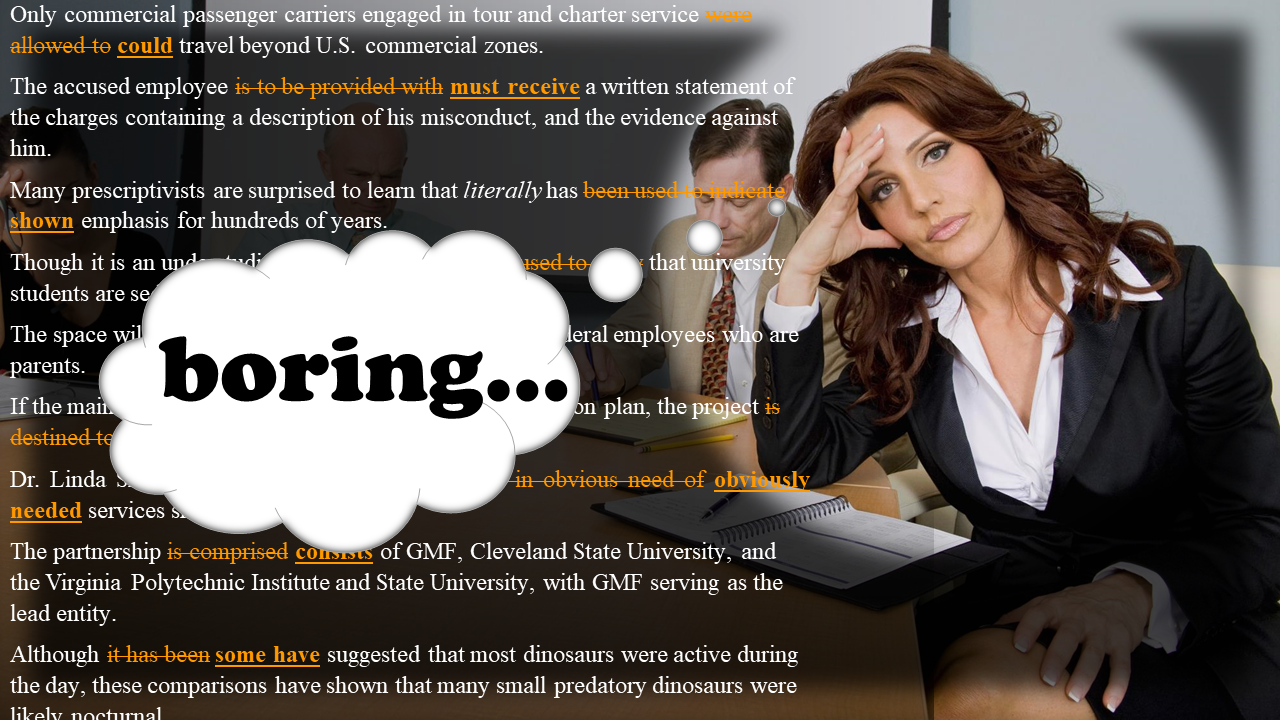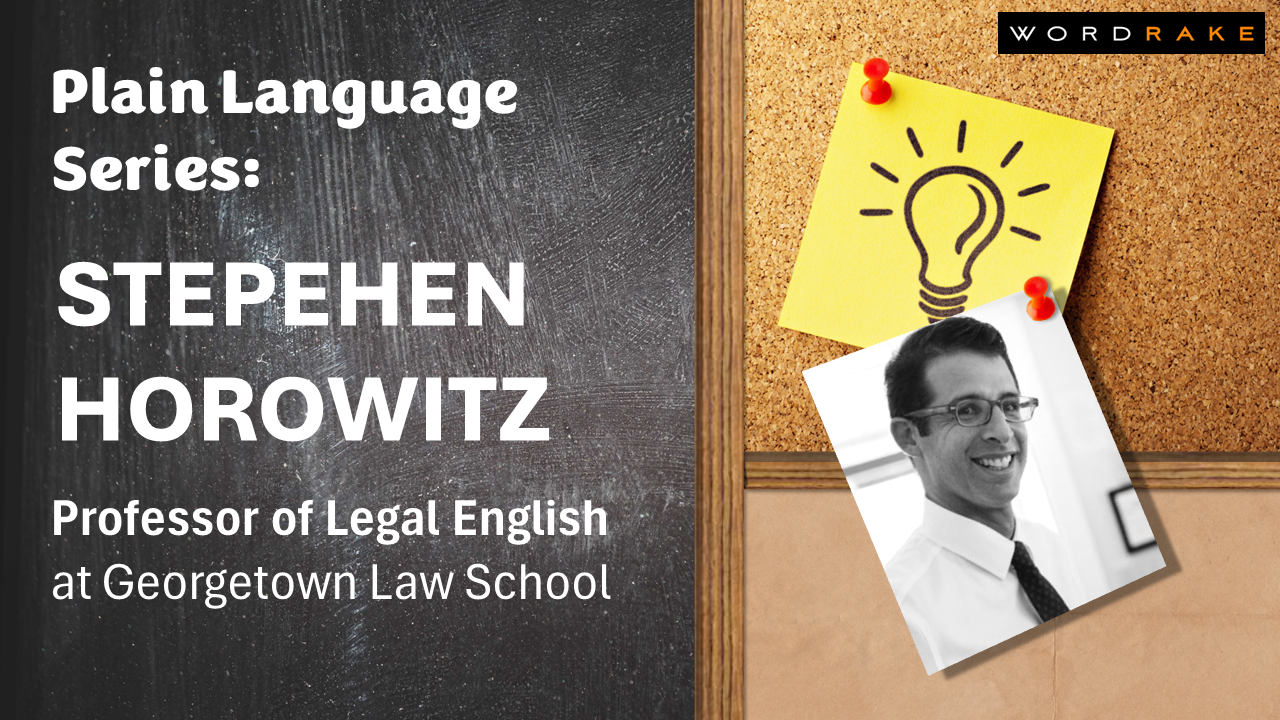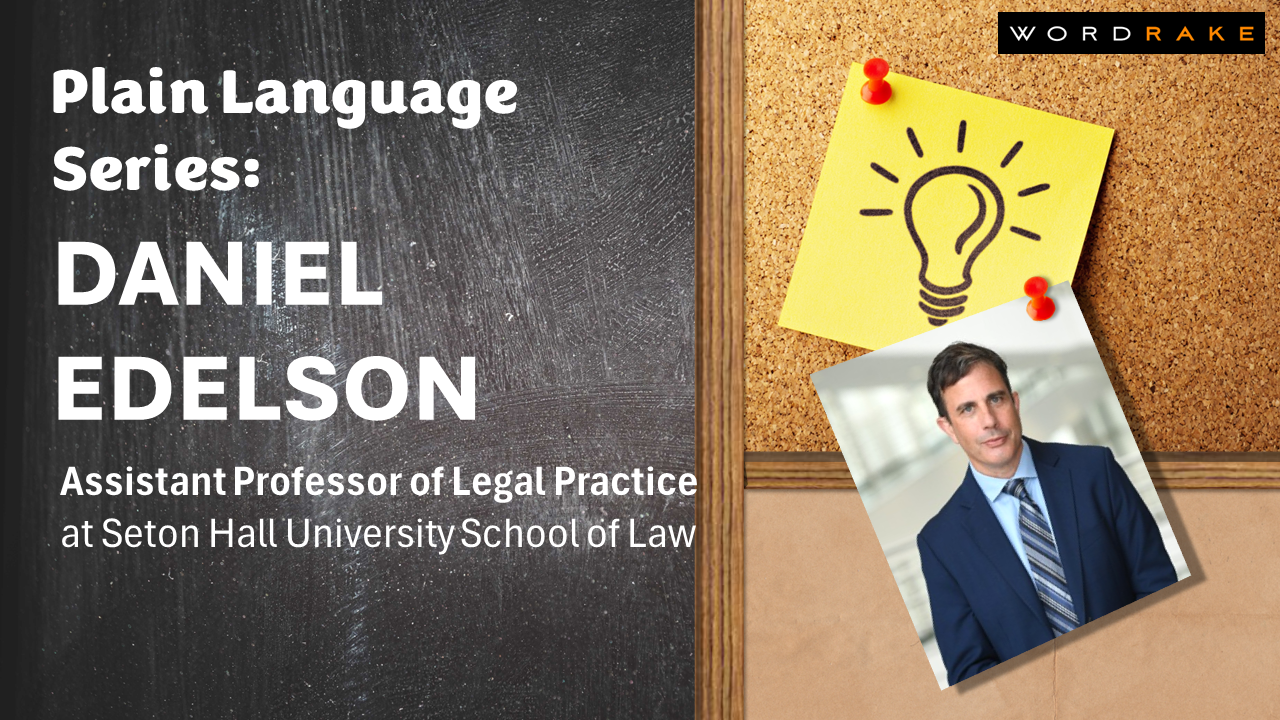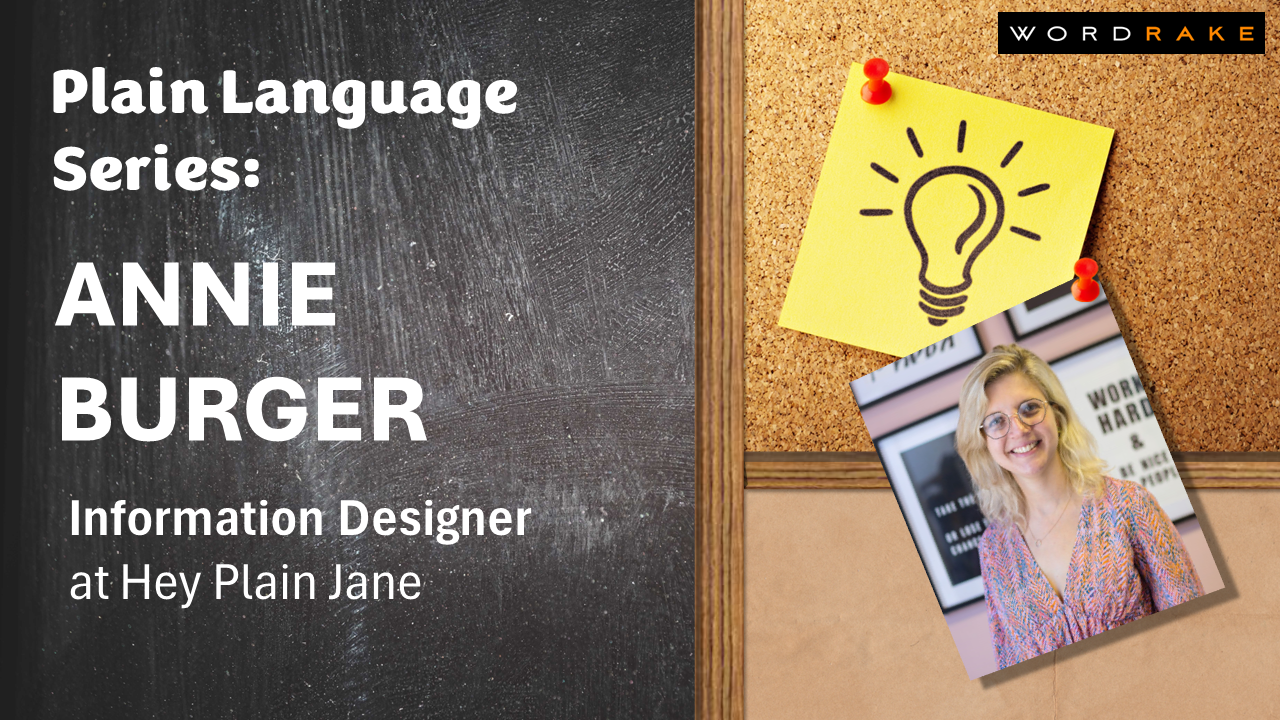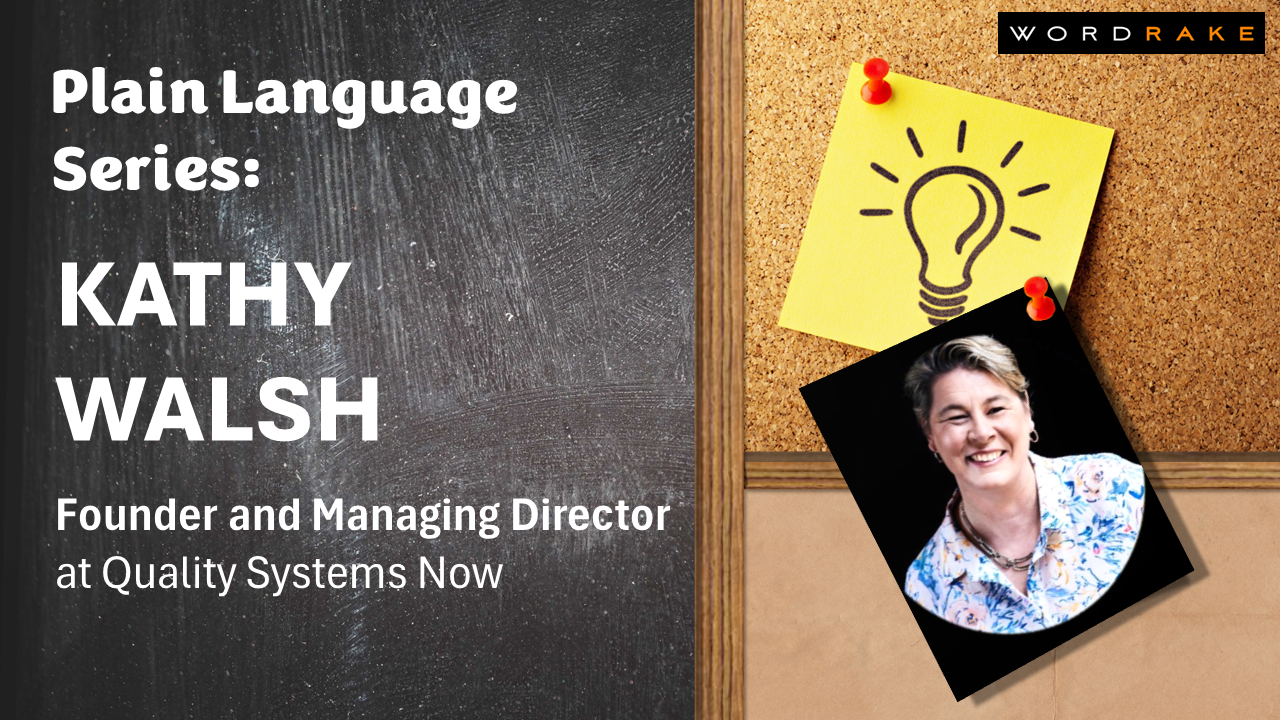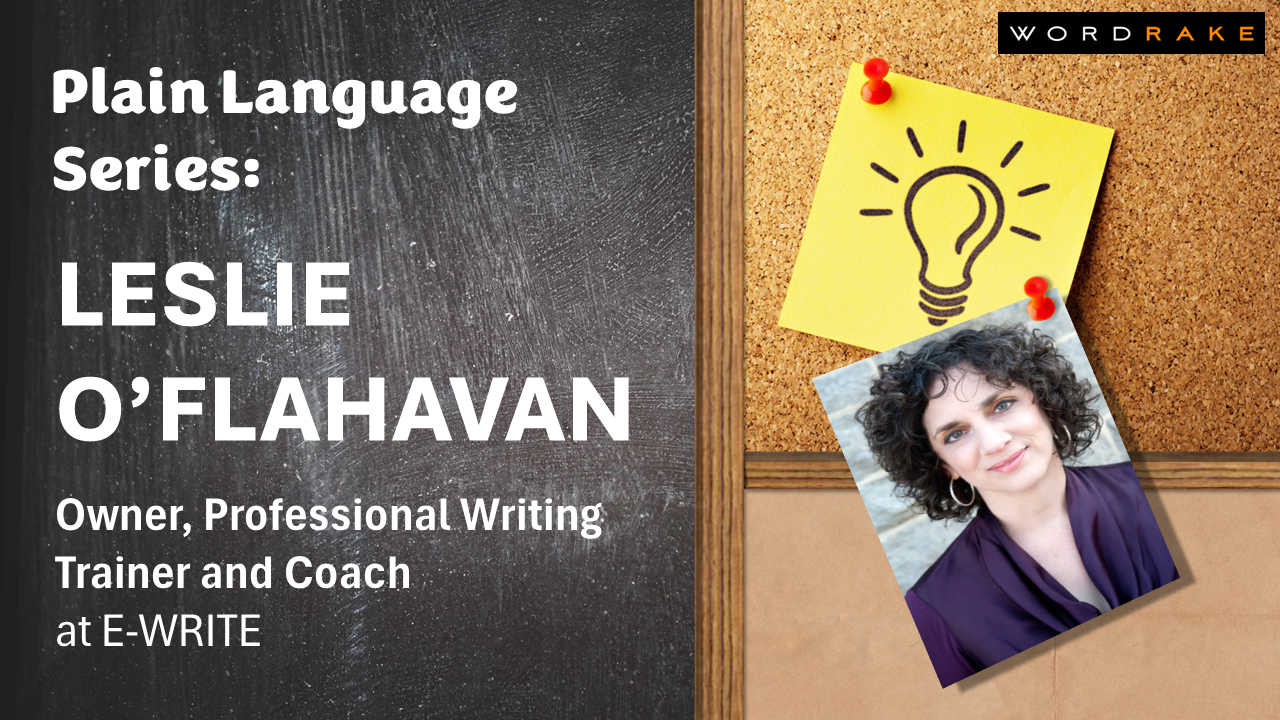Email has become the primary method of business communication—72% of people prefer email as their main source of business communication. But are we truly communicating? Sixty-four percent of businesspeople report having either sent or received an email that resulted in unintended anger or confusion. Research shows it’s because we’re not communicating effectively: Email senders overestimate their clarity and persuasiveness and email receivers only determine tone correctly 56% of the time.
Continue readingTo tighten each sentence, search for redundant words where the meaning could be clearly expressed with a single word. Most writers know to eliminate doublets and triplets, but overlook other redundancies in:
- word pairs or groups where the meaning of a word implies or includes its modifier
- word pairs or groups where the specific word implies the general category
- throw-away phrases that describe the writer’s intentions, give directions to the reader, or describe the structure of the text
It's hard to keep your mind on your task. The New York Times recently reported that brain fog is becoming an increasingly serious issue for the American workforce. The blahs that come from staring at your computer screen can be chased away by injecting some fun into your process. Enter gamification: adding elements of the gaming experience to a boring or unpleasant task to encourage you to complete it.
Continue readingIt’s common writing advice: Avoid redundancies. Redundant writing dilutes our message, kills subtlety, and wastes space and time. The words you waste with redundant language could be better used for examples to support your ideas or details that drive your point home and make it memorable. But redundancies are hard to spot without thinking deeply about every word in every sentence.
Continue readingEveryone remembers their high school English teachers admonishing them against using the dreaded passive voice. According to composition class lore, using passive voice was the chief writing sin—and avoiding it was the key to strengthening writing. If true, then two questions remain:
- What is passive voice, anyway? (Don’t worry: Even the most pedantic folks can get it wrong!)
- How do we re-write sentences to avoid passive voice? (What good is pointing out a writing ill without offering a writing cure?)
In this blog post, we’ll give you a refresher on passive voice, show you how to fix it, and explain the four times when passive voice is acceptable in your writing.
Continue readingLearning any language is hard, and English is no exception. Professor Stephen Horowitz has lived and worked abroad, and brings the lessons he learned from his time teaching in Japan to his instruction of Legal English. For him, clear communication with English as a Second Language (ESL) students is a matter of teaching what they need to know, while eliminating cultural jargon from his own speech. His nuanced view of plain language shed a light on how important it is to tailor communication for your target audience.
What is your role and how is it connected to clear communication?
I’m a Professor of Legal English at Georgetown Law School. I help international masters of laws (LLM) students improve their ability to comprehend and communicate in a US legal environment.
Continue readingThe decision to write in plain language is usually a simple matter, but is it always the best choice? Professor Daniel Edelson of Seton Hall University School of Law is a proponent of plain English, but he cautions that it may be more difficult for professionals who have learned English as a second language to understand. He shares his tips for communicating clearly with non-native English speakers in this interview for International Plain Language Day.
What is your role and how is it connected to clear communication?
I teach legal writing and academic skills to J.D. and LL.M. students at Seton Hall University School of Law. In addition, I teach legal English and US law online to students around the world. I am responsible for teaching students to communicate in a way that will meet the expectations of the US legal profession.
Continue readingPlain language isn't all about word choice and sentence structure: it's also about design. Where does information sit on a page or website? Are your graphics adding information and function, or just clutter? Information designers and plain language experts like Annie Burger are constantly thinking about how to make important content accessible and usable. She shares her experience with creating clear content with us for International Plain Language Day.
What is your role and how is it connected to plain language?
I am an information designer and a plain language practitioner at Hey Plain Jane. Basically, we help create clear communication and use any means to achieve that, including words and visuals. I am also a postdoctoral fellow at Stellenbosch University in South Africa. In my research I focus on plain language and how it is experienced in the real world.
Continue readingWe've all run into technical instructions for a product that flew way over our heads. This is annoying when it's something for fun, but when it comes to things like medication and medical devices, those confusing documents can be life threatening. That's why scientists like Kathy Walsh and her company Quality Systems Now work with the companies producing these products to make their information as clear as possible. Kathy shares the importance of plain writing in the sciences in her Q&A for International Plain Language Day.
What is your role and how is it connected to plain language?
I am the founder and Managing Director of Quality Systems Now (QSN), an Australian consulting company that helps pharmaceutical and medical device companies gain or maintain compliance accreditations or meet the manufacturing quality expectations required to make therapeutic goods.
Continue readingIf you've never specifically written in plain language before, it can be difficult to know where to start. Most of us were taught that big words and complex sentences would make us sound smart and trustworthy. Once you realize that your work gains more credence when you write for your audience's needs, it can be hard to break the highfalutin habit. Fortunately, professional writing coach Leslie O'Flahavan has some concrete advice for how to communicate clearly.
What is your role and how is it connected to plain language?
For 27 years, I’ve been the owner of E-WRITE, a writing training consultancy. My mission is to help people write well at work, and plain language provides the framework. I help people understand their relationship with their readers and develop writing skills, so they can meet readers’ needs.
Continue reading



